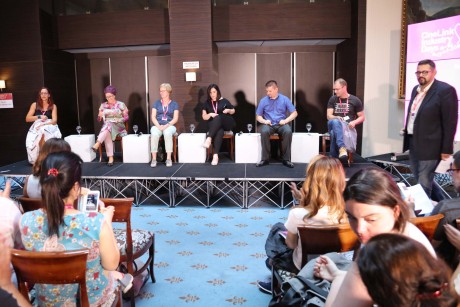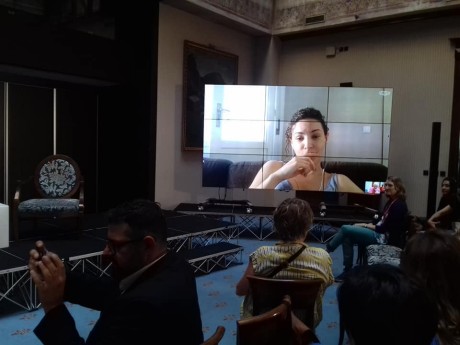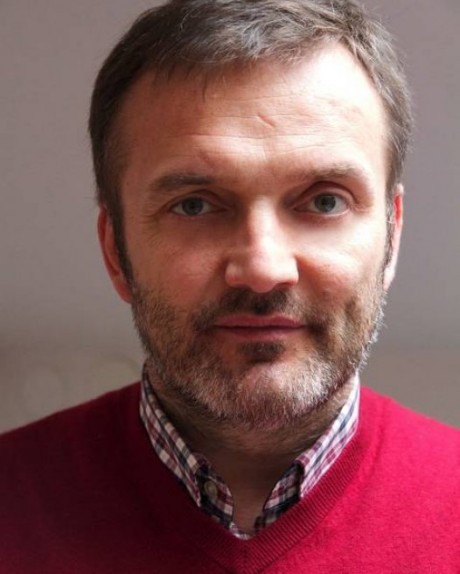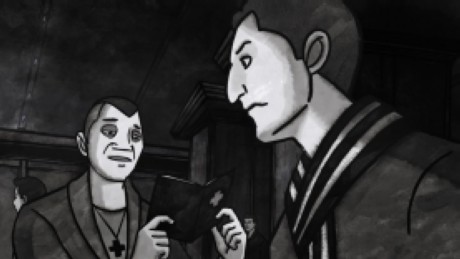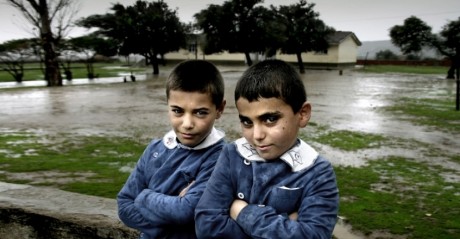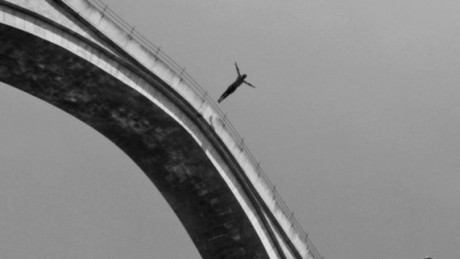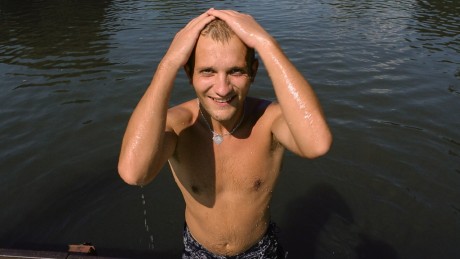


Sarajevo FF: Rough Cut Boutique Awards
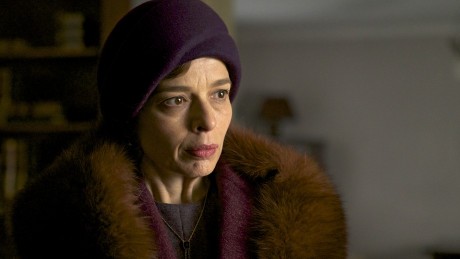
Yesterday morning the Rough Cut Boutique presented the five projects that under the leadership of Rada Sesic and Martichka Bozhilova were developed with the tutorial help of people like editor Tom Ernst, producer Stefano Tealdi, commissioning editor Hanka Kastelicova, Katrine Kilgaard from CPH:DOX, Aleksandra Derewienko from Cat&Docs in Paris, Jenny Westergaard from YLE Finland and others.
The presentation took place at a conference room of Hotel Europe, not the best place as the presenters were standing in almost total darkness, no spotlight on them, which made the atmosphere a bit sleepy. The verbal presentation (I was told that they were trained in pitching, sorry could not see that) was followed by clips/scenes from the rough cuts. Have to confess that it is difficult to get a true impression of a film from the visual material.
There were awards for the best projects. They went like this:
– 20.000 EUR postproduction award by Digital Cube Romania: DAUGHTER OF CAMORRA, Siniša Gačić
– IDFA Award – the winner will be fully invited to IDFA 2018: DIARY OF A SERIOUS OFFENDER, Danilo Ceković
– HBO Europe Award – 2000 EUR: DAUGHTER OF CAMORRA, Siniša Gačić
– CAT&Docs Award – 2000 EUR: THE MAGIC LIFE OF V, Tonislav Hristov
– DOK Preview at DOK Leipzig 2018 and visit to the Festival and presentation: ONE OF US, Đuro Gavran
There was a big quality difference among the five with the Finnish/Bulgarian collaboration (Kaarle Aho and Tonislav Hristov) on a high professional level (superb camera work), whereas the others were beginners or less experienced.
Luckily there was a guest project that I knew about from way back, a film – again – dealing with the past, “Aktion DB” (PHOTO); Dana Budisavljevic is the director who pitched together with producer Miljenka Cogelja. An extraordinary story about an extraordinary woman Diana Budisavljevic, who during WW2 helped children and women out of the concentration camps set up by the Germans and their Croatian partners, the Ustashas. It’s 10000 children and the film is a docufiction using an actress to play DB, sequences with survivors who go the places, where the camps were and shocking archive material from the camps. The director has – from the scenes I saw – found her form, she has made her aesthetic choice, b/w and colour mixed, the b/w maybe tinted a bit, it looked impressive.
https://www.google.com/search?q=Hulahop+films&ie=utf-8&oe=utf-8&client=firefox-b

